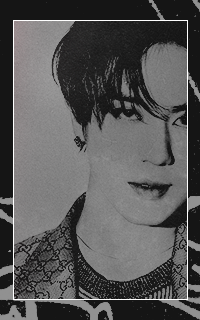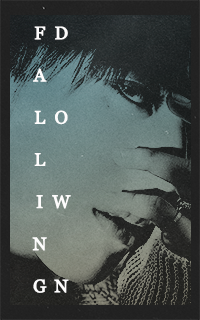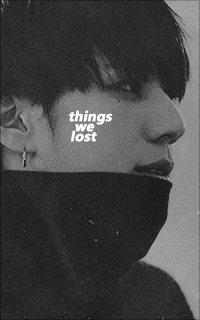Toolbar
Want to friend Harry Chase Williams? You need to log in or join our community, first! It's fast, free and easy.
Want to tell the world what you love about Harry Chase Williams? You need to log in or join our community, first! It's fast, free and easy.
Played by a verified adult
Harry Chase Williams
will go as
-
 ── ⋯ ─── ⋯ ───── ⋯⋯ ──────────────────── ⋯⋯ ───── ⋯ ─── ⋯ ──── ⋯─ ─────── .✦ ❝ 𝐈 𝐉𝐔𝐒𝐓 𝐖𝐀𝐍𝐍𝐀 𝐆𝐎, 𝐈 𝐉𝐔𝐒𝐓 𝐖𝐀𝐍𝐍𝐀 𝐅𝐋𝐘 ! ──────── ⋯ ─── ⋯ ─── ⋯ ───── ⋯⋯ ──────────────────── ⋯⋯ ───── ⋯ ─── ⋯ ──
── ⋯ ─── ⋯ ───── ⋯⋯ ──────────────────── ⋯⋯ ───── ⋯ ─── ⋯ ──── ⋯─ ─────── .✦ ❝ 𝐈 𝐉𝐔𝐒𝐓 𝐖𝐀𝐍𝐍𝐀 𝐆𝐎, 𝐈 𝐉𝐔𝐒𝐓 𝐖𝐀𝐍𝐍𝐀 𝐅𝐋𝐘 ! ──────── ⋯ ─── ⋯ ─── ⋯ ───── ⋯⋯ ──────────────────── ⋯⋯ ───── ⋯ ─── ⋯ ── Harry's family history is actually quite large and incredibly complicated. It all goes back into his cousin's history as well— Joshua Lee Tagawa. Somehow, they both tie in together. Harry's father- Joo-hwan- had two other younger siblings and both of them were sisters. The second oldest out of the three was Hye-won, a rather ambitious and playful woman— and the youngest sister was Akiara, who was an introvert yet incredibly kind. But there was something different about the youngest one. Akiara was abandoned when she was a young baby, and Joo-hwan's mother found her right on her doorstep after coming back from work, left inside a little basket with a few spare clothes for the baby and a heartbreaking note. Although Akiara was adopted, the family learned to love her and soon enough, she even became Hye-won's favourite sibling (ouchies for Joo-hwan). They all grew up in America (since joo-hwan's father was American) and the children went to expensive private schools, where they then came out with their best grades and went off to better colleges/universities.
Harry's family history is actually quite large and incredibly complicated. It all goes back into his cousin's history as well— Joshua Lee Tagawa. Somehow, they both tie in together. Harry's father- Joo-hwan- had two other younger siblings and both of them were sisters. The second oldest out of the three was Hye-won, a rather ambitious and playful woman— and the youngest sister was Akiara, who was an introvert yet incredibly kind. But there was something different about the youngest one. Akiara was abandoned when she was a young baby, and Joo-hwan's mother found her right on her doorstep after coming back from work, left inside a little basket with a few spare clothes for the baby and a heartbreaking note. Although Akiara was adopted, the family learned to love her and soon enough, she even became Hye-won's favourite sibling (ouchies for Joo-hwan). They all grew up in America (since joo-hwan's father was American) and the children went to expensive private schools, where they then came out with their best grades and went off to better colleges/universities.
All three siblings had a pretty successful life and different paths. After education, went off to start their own families. In fact, Joo-hwan was the first one to have a child. That child is Harry, and Harry was born in America. The second one to have a child was Akiara who had moved off to Japan and had her baby, Joshua, there. And lastly, the third one was Hye-won who had a daughter called Sohyun and later on a younger boy called Jae-beom. From then on, you'd think that it's all a happily ever after story, right? Well, not quite. One day, Harry's father got a heart-wrenching call from the police. His younger sister Akiara went missing in Japan, and there was a possibility that she was in fact, kidnapped. After that, everything became quite chaotic and it had massive impacts on the whole family. Harry never thought that this impact could ever affect him so much. Not in such an annoying way.

Unfortunately for Harry, he had to see his cousins quite often. He wasn't very happy about seeing them, especially one particular individual. As you can guess, that would be ya boi Joshua. They had some sort of rivalry from the beginning and it first started out over tiny stupid things, such as- eating each other's pretzels, stealing toys, colouring in each other's colouring books... Boy, you name it. Harry resented Joshua quite a lot especially since he often bragged about being smarter. Both of them were equally smart, just- Joshua liked to show it more as he thought it was a great gift to have. However, Harry learned to ignore him quite often. And the fact that ignoring him didn't bloody work, is what made him hate his cousin even more. Every time he talked to his parents, there wasn't a single time his cousin's name wasn't bought up. And for the love of god, he had to deal with him for years, almost every day ever since his mother went missing, because ''he felt lonely'' (as his parents had always told him to make him calm down u3u).
Harry had quickly changed from one who wanted to see the entire world, to one who was mainly intrigued by what makes the world. He was an extrovert all the time and it was incredibly easy for him to make friends, especially since he was, and had always been incredibly smart. Being an intellectual with a high IQ was no doubt a trait which ran through his whole family. Out of all of them though, Harry would have to be the most playful and bubbly one. He's much like his auntie Hye-won and both of them share common traits. In fact, they often consider each other to be best buds. He is also very hard to ignore and reject- who'd want to not be friends with someone as bright and amazing as him? He's always been this way, hence why his childhood was very active and amazing. He went to normal schools (he moved schools many times) but that was due to the fact that his parents liked moving in other pretty areas, oddly enough.

During his childhood however, he slowly developed a great amount of love for sciences and biology. Harry found his love through the school courses and there had never been a time where he failed in Science. He loves discovering how different organisms react, change or evolve- and most importantly, how they work together to create something. To him though, this is more than just 'science'. The observation, identification, description, experimental investigation, and theoretical explanation of natural phenomena fascinates him- it is what makes him understand how life works. And it all goes so much deeper. With the ability to understand how different lifeforms act and react to other things, cures could be created and medicine would improve. Human evolution could improve- same as animals and plants. Sometimes, technology could come in handy as well. This is what he likes. This is what inspires and had always inspired him. Saving lives and improving it as well as helping the world.
His ambition and inspiration is what truly drove him on. After leaving school, he was accepted into the University of Cambridge so he flew all the way to the UK from America to study sciences further more. His path was clear already. Harry Chase Williams was going to be a professional scientist and he will contribute to saving the world! He already felt like some sort of super hero. And although the job will be hard and he will have to go through a lot of pressure, he is determined to work incredibly hard. Perhaps, one day, he could make his own little invention and he could maybe cure world hunger or find many cures to diseases... But this is a very high level of ambition and he knows well that it would take A LOT of effort and thought to get to that point. So for now, he was going to just take it easy. Perhaps though- maybe his dreams could come true one day and he'd be important. Maybe he will really be a hero.
 ⋯ ───── ⋯⋯ ──────────────────── ⋯⋯ ───── ⋯
⋯ ───── ⋯⋯ ──────────────────── ⋯⋯ ───── ⋯ ⋯ ───── ⋯⋯ ──────────────────── ⋯⋯ ───── ⋯
⋯ ───── ⋯⋯ ──────────────────── ⋯⋯ ───── ⋯
 Honest. Honesty is going to take you places in life that you never could have dreamed and it’s the easiest thing you can practice in order to be happy, successful and fulfilled. Honesty is part of the foundation of my core values and principles. Honesty cuts through deception and knifes its way through deceit and lies. Honesty leads to a fulfilling, free life. Honesty is not just about telling the truth. It’s about being real with yourself and others about who you are, what you want and what you need to live your most authentic life. Honesty promotes openness, empowers us and enables us to develop consistency in how we present the facts. Honesty sharpens our perception and allows us to observe everything around us with clarity. The opposite of honesty is deception — or lying. Lying is equally bad whether you are deceiving others or yourself. When you lie, you delude yourself into believing what you’re saying. You start digging a hypothetical ditch, even if with an infant-sized spoon, that will keep getting bigger over time. You confuse yourself, confuse others, lose credibility and put yourself in harm. The worst type of lying we practice, in order to deceive, is when we lie to ourselves. We start messing around with our concept of morality, right and wrong, as well as our dreams and desires. Times that I lied in order to do something that I knew was wrong, I could feel it. My inner core warred and rebelled against what I was mentally committing to doing because it was in contrast to who I really am. An emotionally intelligent person is a person of impeccable integrity and honesty; someone who can perceive and recognize the quality of honesty in another.
Honest. Honesty is going to take you places in life that you never could have dreamed and it’s the easiest thing you can practice in order to be happy, successful and fulfilled. Honesty is part of the foundation of my core values and principles. Honesty cuts through deception and knifes its way through deceit and lies. Honesty leads to a fulfilling, free life. Honesty is not just about telling the truth. It’s about being real with yourself and others about who you are, what you want and what you need to live your most authentic life. Honesty promotes openness, empowers us and enables us to develop consistency in how we present the facts. Honesty sharpens our perception and allows us to observe everything around us with clarity. The opposite of honesty is deception — or lying. Lying is equally bad whether you are deceiving others or yourself. When you lie, you delude yourself into believing what you’re saying. You start digging a hypothetical ditch, even if with an infant-sized spoon, that will keep getting bigger over time. You confuse yourself, confuse others, lose credibility and put yourself in harm. The worst type of lying we practice, in order to deceive, is when we lie to ourselves. We start messing around with our concept of morality, right and wrong, as well as our dreams and desires. Times that I lied in order to do something that I knew was wrong, I could feel it. My inner core warred and rebelled against what I was mentally committing to doing because it was in contrast to who I really am. An emotionally intelligent person is a person of impeccable integrity and honesty; someone who can perceive and recognize the quality of honesty in another.
 Smart. Intelligence has been defined in many ways, including: the capacity for logic, understanding, self-awareness, learning, emotional knowledge, reasoning, planning, creativity, critical thinking, and problem solving. More generally, it can be described as the ability to perceive or infer information, and to retain it as knowledge to be applied towards adaptive behaviors within an environment or context.Intelligence is most often studied in humans but has also been observed in both non-human animals and in plants. Intelligence in machines is called artificial intelligence, which is commonly implemented in computer systems using programs and, sometimes, appropriate hardware. Individuals differ from one another in their ability to understand complex ideas, to adapt effectively to the environment, to learn from experience, to engage in various forms of reasoning, to overcome obstacles by taking thought. Although these individual differences can be substantial, they are never entirely consistent: a given person's intellectual performance will vary on different occasions, in different domains, as judged by different criteria. Concepts of "intelligence" are attempts to clarify and organize this complex set of phenomena. Although considerable clarity has been achieved in some areas, no such conceptualization has yet answered all the important questions, and none commands universal assent. Indeed, when two dozen prominent theorists were recently asked to define intelligence, they gave two dozen, somewhat different, definitions. Intelligence enables humans to experience and think.
Smart. Intelligence has been defined in many ways, including: the capacity for logic, understanding, self-awareness, learning, emotional knowledge, reasoning, planning, creativity, critical thinking, and problem solving. More generally, it can be described as the ability to perceive or infer information, and to retain it as knowledge to be applied towards adaptive behaviors within an environment or context.Intelligence is most often studied in humans but has also been observed in both non-human animals and in plants. Intelligence in machines is called artificial intelligence, which is commonly implemented in computer systems using programs and, sometimes, appropriate hardware. Individuals differ from one another in their ability to understand complex ideas, to adapt effectively to the environment, to learn from experience, to engage in various forms of reasoning, to overcome obstacles by taking thought. Although these individual differences can be substantial, they are never entirely consistent: a given person's intellectual performance will vary on different occasions, in different domains, as judged by different criteria. Concepts of "intelligence" are attempts to clarify and organize this complex set of phenomena. Although considerable clarity has been achieved in some areas, no such conceptualization has yet answered all the important questions, and none commands universal assent. Indeed, when two dozen prominent theorists were recently asked to define intelligence, they gave two dozen, somewhat different, definitions. Intelligence enables humans to experience and think.
 Decisive. Making good decisions is a fundamental aspect of being a trusted co-worker or an excellent leader. Yet, too often, studies show, our emotions have a huge influence over the quality of our decision-making, preventing us from making sound judgments. One major study found that almost 75% of major companies have no set strategy or system in place to help inform crucial decisions. Other studies indicate that effective decision-making practices can reduce the failure rate of projects by nearly 50%. Arriving at a good decision is too important to be left to chance. At The School of Life, we are dedicated to improving the emotional intelligence that is employed in such key areas. Our approach concerns those emotional barriers which often interfere with the decision-making process – the anxieties that negatively shape our thinking – as well as the psychological biases which determine the way in which different people respond to the same array of choices. Indecision is paralyzing. Decisiveness is powerful. The way we make strategic decisions varies by our personalities and what gives us comfort. Some of us crave quantitative, statistically relevant data, others crave the energy or permission of others. The truth is, regardless of personality and what data gives us comfort, we are often required to make decisions with an incomplete amount of data. This is at the core of operating amidst ambiguity, a capability necessary for any entrepreneurial adventurer. Some people seem to have it all together and constantly be in a position of strength, and ultimately decisiveness. These people are typically in leadership roles as decisiveness is a default mindset of theirs.
Decisive. Making good decisions is a fundamental aspect of being a trusted co-worker or an excellent leader. Yet, too often, studies show, our emotions have a huge influence over the quality of our decision-making, preventing us from making sound judgments. One major study found that almost 75% of major companies have no set strategy or system in place to help inform crucial decisions. Other studies indicate that effective decision-making practices can reduce the failure rate of projects by nearly 50%. Arriving at a good decision is too important to be left to chance. At The School of Life, we are dedicated to improving the emotional intelligence that is employed in such key areas. Our approach concerns those emotional barriers which often interfere with the decision-making process – the anxieties that negatively shape our thinking – as well as the psychological biases which determine the way in which different people respond to the same array of choices. Indecision is paralyzing. Decisiveness is powerful. The way we make strategic decisions varies by our personalities and what gives us comfort. Some of us crave quantitative, statistically relevant data, others crave the energy or permission of others. The truth is, regardless of personality and what data gives us comfort, we are often required to make decisions with an incomplete amount of data. This is at the core of operating amidst ambiguity, a capability necessary for any entrepreneurial adventurer. Some people seem to have it all together and constantly be in a position of strength, and ultimately decisiveness. These people are typically in leadership roles as decisiveness is a default mindset of theirs.
 Picky. Other names for stubbornness include dogged insistence, intransigence, temerity and pig-headedness. Stubbornness is essentially an entrenched resistance to change. And given that life is all about change, stubbornness is effectively a resistance to life itself. The person with stubbornness is driven by a fundamental resistance to being forced to do anything or experience anything against his will. The basic stance is, “No, I won’t, and you can’t make me.” The personality with stubbornness is over-sensitive to the possibility of having sudden or unwanted change imposed upon itself, and sees the threat of it everywhere. Anything new or different or involving change is perceived (subconsciously at least) as a direct threat—even if the change in question is positive and in the person’s best interests.In the case of stubbornness, the early negative experiences typically consist of domestic instability or upheaval and the stress of having to suddenly put up with new situations. The situations causing such stress could be beyond the parents’ control, such as having to uproot in a time of war. Alternatively, the stressful instability (as the child experiences it) could be of the parents’ own choosing, such as constantly moving home to find a better job. Most often, perhaps, it is just part of ordinary family life—the arrival of a new baby, for instance. Whatever the circumstances, the core experience for the child in question is the shock of the new. Just when the child thought she knew where she was, living safely at home with her best friends and her favourite toys, without any warning she is whisked off to start afresh in a new, unfamiliar place. Change has been imposed against her will, and it has caused unbearable stress. The cumulative effect is a desperate desire for stability and familiarity.
Picky. Other names for stubbornness include dogged insistence, intransigence, temerity and pig-headedness. Stubbornness is essentially an entrenched resistance to change. And given that life is all about change, stubbornness is effectively a resistance to life itself. The person with stubbornness is driven by a fundamental resistance to being forced to do anything or experience anything against his will. The basic stance is, “No, I won’t, and you can’t make me.” The personality with stubbornness is over-sensitive to the possibility of having sudden or unwanted change imposed upon itself, and sees the threat of it everywhere. Anything new or different or involving change is perceived (subconsciously at least) as a direct threat—even if the change in question is positive and in the person’s best interests.In the case of stubbornness, the early negative experiences typically consist of domestic instability or upheaval and the stress of having to suddenly put up with new situations. The situations causing such stress could be beyond the parents’ control, such as having to uproot in a time of war. Alternatively, the stressful instability (as the child experiences it) could be of the parents’ own choosing, such as constantly moving home to find a better job. Most often, perhaps, it is just part of ordinary family life—the arrival of a new baby, for instance. Whatever the circumstances, the core experience for the child in question is the shock of the new. Just when the child thought she knew where she was, living safely at home with her best friends and her favourite toys, without any warning she is whisked off to start afresh in a new, unfamiliar place. Change has been imposed against her will, and it has caused unbearable stress. The cumulative effect is a desperate desire for stability and familiarity.
─ ─ ⋯ ── ─ ─ ⋯ ── ─ ─ ⋯ ──P E R S O N A
─ ─ ⋯ ── ─ ─ ⋯ ── ─ ─ ⋯ ──Health
◆◆◆◆◇
Speed
◆◆◆◆◆
Strength
◆◆◆◇◇Stamina
◆◆◆◆◇
Intelligence
◆◆◆◆◆
Creativity
◆◆◆◇◇Humour
◆◆◇◇◇
Passion
◆◆◆◆◇
Empathy
◆◆◇◇◇Charisma
◆◆◆◇◇
Social Skills
◆◆◆◇◇
Confidence
◆◆◆◆◇Luck
◆◆◇◇◇
Honesty
◆◆◆◆◆
Persuasiveness
◆◇◇◇◇
── ⋯ ─── ⋯ ───── ⋯⋯ ──────────────────── ⋯⋯ ───── ⋯ ─── ⋯ ──𝐎𝐔𝐓 𝐎𝐅 𝐀𝐋𝐋 𝐓𝐇𝐄 𝐓𝐇𝐈𝐍𝐆𝐒 𝐖𝐄 𝐋𝐎𝐒𝐓, 𝐈𝐓 𝐖𝐀𝐒 𝐎𝐔𝐑 𝐁𝐄𝐆𝐈𝐍𝐍𝐈𝐍𝐆 𝐓𝐎 𝐓𝐇𝐄 𝐄𝐍𝐃. 𝐒𝐄𝐀.── ⋯ ─── ⋯ ───── ⋯⋯ ──────────────────── ⋯⋯ ───── ⋯ ─── ⋯ ──